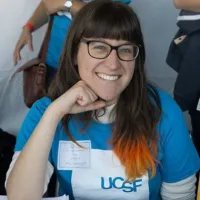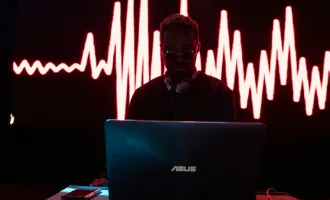Sharing Science
Scientific breakthroughs are occurring at a rate faster than ever before. In 2007, it was estimated that 1.5 million new scientific papers were published.
Despite this exponential growth in scientific discovery, many researchers struggle to access scientific knowledge because a large portion lies just out of reach, trapped behind a paywall.
It is essential for scientists to read primary literature to learn about their area of research and the questions that remain to be answered. However, these financial barriers, instated by publishing companies, prevent researchers from contributing fully to important scientific findings and slows scientific progress.
One solution comes in the form of the open science movement, which believes that scientific knowledge should not be restricted but distributed broadly, free of charge and free of most copyright and licensing restrictions.
The open science movement also promotes increased access to data and research methods as a means of improving reproducibility.
Indeed, the reproducibility crisis we face in the sciences has inspired the creation of several organizations whose purpose is to make protocol searching, sharing and publishing easier.
Two individuals at the forefront of this movement are Editor in Chief of Bio-protocol Marielle Cavrois and CEO and cofounder of protocols.io Lenny Teytelman. They will be at UCSF on June 14 as part of an event hosted by the UCSF Open Science Group.
The current closed science model in which business-minded publishers act as the gate-keepers of scientific knowledge is unsustainable.
Scientific journals were created so scientists could share information and work collectively to push the frontiers of science.
When journals were printed, scientists would submit their research, and the journals would handle the review process as well as typesetting, printing, and distribution of the researchers’ work.
Publishing scientific manuscripts was an expensive process, but it allowed for the broad dissemination of scientific knowledge.
However, journal prices are continuously increasing, and are doing so significantly faster than inflation rates and library budgets.
While publishers do have expenses, the current financial barriers to knowledge seem exorbitant.
Journals don’t fund the discoveries they publish, they don’t employ the researchers or reviewers and, in many cases, they don’t even employ the editors, who are often academic researchers volunteering their valuable time.
Funding for all of these things largely comes from government grants made possible by the tax-paying public.
Publishing companies take this taxpayer-funded research and monetize it by charging high prices to access the resulting research paper.
In addition to price barriers, journals also instate permission barriers.
Before the paper can be published the authors must exclusively assign the journal all rights to their manuscript. Researchers thus lose the control over their own research, including the right to provide copies to colleagues.
When pieces of scientific knowledge are locked behind financial barriers it hurts the researchers by limiting their audience and therefore the impact of their paper. It also harms readers by restricting access to the scientific knowledge on which their careers depend.
Access to scientific manuscripts is just one part of the problem with the current model of scientific communication. Another issue is access to the methods researchers are using to push the frontiers of scientific knowledge.
Troubleshooting and improving scientific methods and techniques are critical to scientific progress. Often these improvements are not considered publishable and thus are difficult to communicate to the broader scientific community.
Additionally, reproducibility is a crucial in science and is necessary to distinguish true findings from artifacts. Methods sections in papers, however, rarely cover the techniques in a manner detailed enough for the procedure to be repeated or offer no details at all, requiring readers to reach out to the authors themselves.
When labs have to individually create or discover improvements for protocols, essentially forcing them to reinvent the wheel, the efficiency of scientific research .
Open science encourages scientists to share protocols they have worked on and allows other researchers to make suggestions and changes that are beneficial for everyone. Open science allows scientists share their published research manuscripts freely without needing to seek permissions. Open science makes it easier for scientific papers to be translated in to different languages and disseminated in developing nations.
Ultimately open science makes scientific research easier to cite, apply, and build upon.
To learn more about open science and help make steps to improve scientific cultural practices and the sharing of scientific knowledge. Register for the Protocol Sharing and Publishing event, happening on Thursday, June 14, from 5 to 7 p.m. at Mission Bay.



